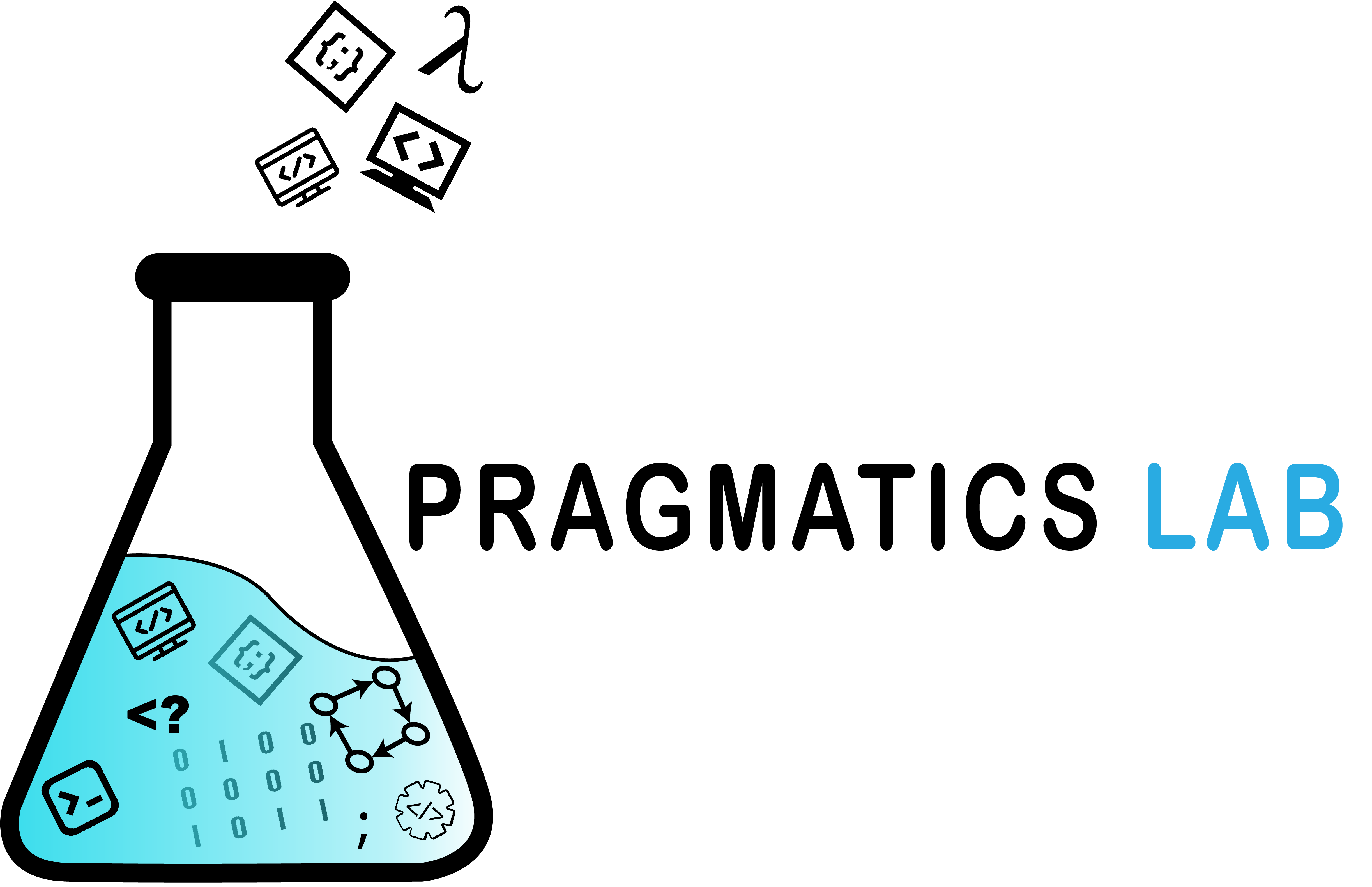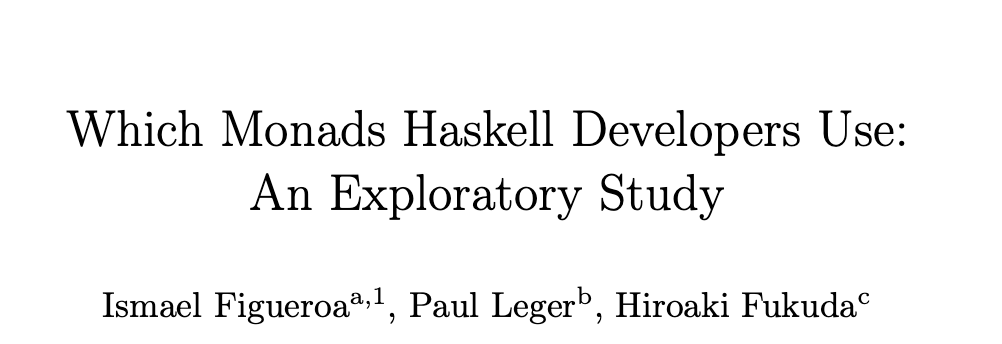The paper “Which Monads Haskell Developers Use: An Exploratory Study” has been accepted in Science of Computer Programming, which is a specialized journal in programming languages and software engineering.
Abstract:
Monads are a mechanism for embedding and reasoning about notions of computation such as mutable state, I/O, exceptions, and many others. Even though monads are technically language-agnostic, they are mostly associated with the Haskell language. Indeed, one could argue that the use of monads is one of the defining characteristic of the Haskell language. In practical terms, monadic programming in Haskell relies on the standard mtl package library, which provides eight-core notions of computation: identity, error, list, state, reader, writer, RWS, and continuations. Despite their widespread use, we are not aware of any empirical investigations regarding which monads are the most used by developers. In this paper we present an empirical study that covers a snapshot of available packages in the Hackage repository—covering 85135 packages and more than five million Haskell files. To the best of our knowledge this is the first large-scale analysis of Hackage with regards to monads and their usage as dependencies. Our results show that around 30.8% of the packages depend on the mtl package, whereas only 1.2% depend on alternative, yet compatible implementations. Nevertheless, usage patterns for each specific monad remain similar both for mtl and alternatives. Finally, the state monad is by far the most popular one, although all of them are used. We also report on the distribution of packages that use mtl, regarding their category and stability level.

